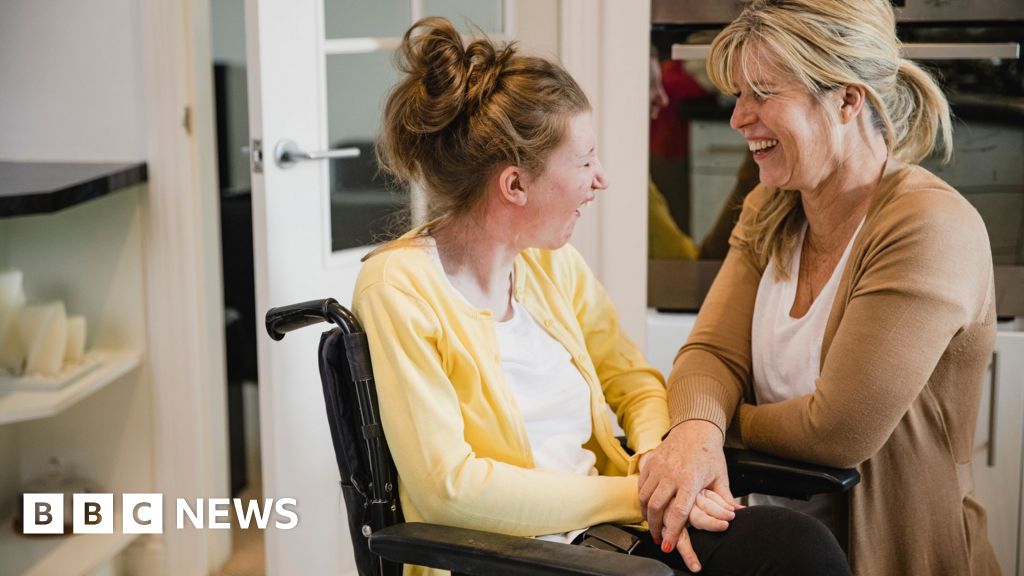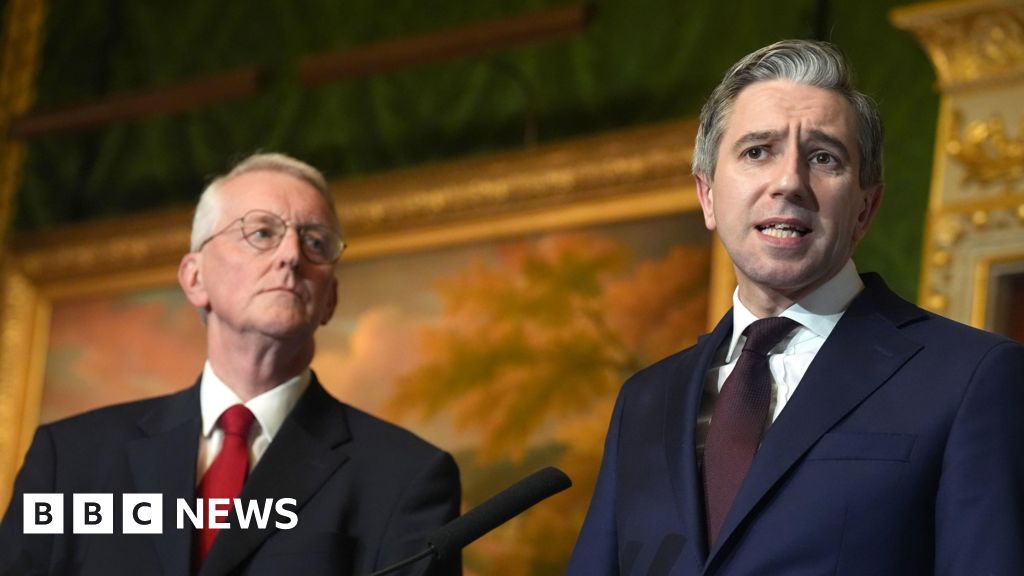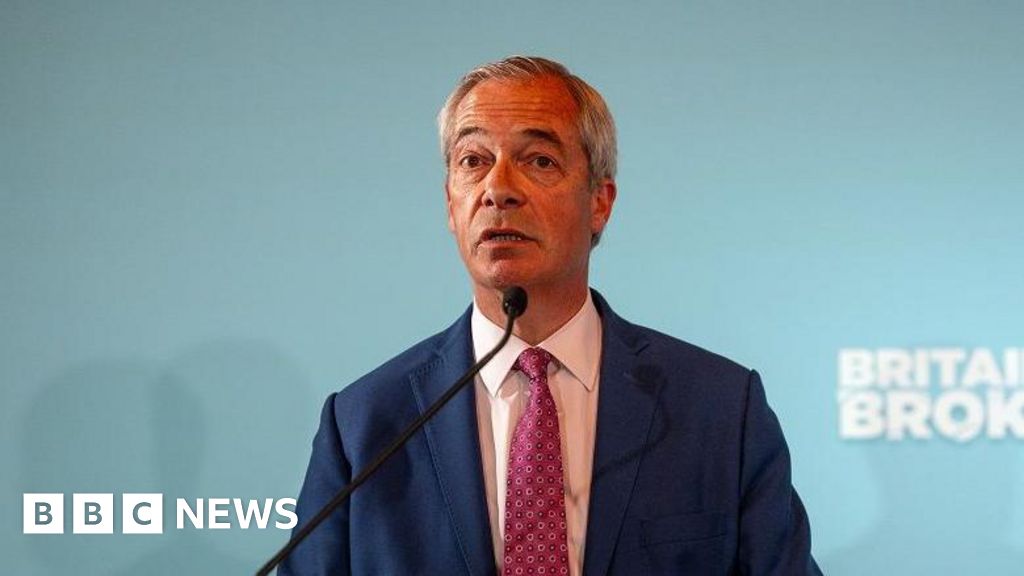ARTICLE AD BOX
By Mark Easton
Home editor
Image source, EPA
Image caption,More than two million people have now fled Ukraine because of the Russian invasion
Home secretaries must know how to deal with flak. It goes with the job.
But when accusations of foot-dragging, complacency, heartlessness and lies come from your own backbenches, you know you have got a serious problem.
One Tory MP has called for Priti Patel to resign over her handling of the Ukrainian refugee emergency.
The Home Office is in crisis mode, trying to convince an increasingly sceptical nation that the department has got a grip of the situation.
"We are doing our best," one insider tells me, before adding: "But we haven't got everything right."
The nightly images of desperate families fleeing a war but turned away by UK government officials confirm the latter point.
This is becoming deeply damaging for the Home Office and the prime minister. Priti Patel is under intense pressure, with suggestions that Downing Street is losing confidence.
The surprise appointment of a minister for refugees operating across two government departments suggests the Home Office is not trusted to sort matters out alone.
'Soul-destroying' criticism
Tellingly, the sponsorship scheme launched to bring some Ukrainians to Britain is being run by Michael Gove's communities department.
Home Office staff were overstretched before the latest humanitarian disaster started to unfold - trying to deal with thousands of Afghans coming to Britain to escape the Taliban, migrants arriving by the boatload having crossed the channel, tens of thousands of Hongkongers fleeing the Chinese clampdown, and increasing numbers of unaccompanied asylum-seeking children with nowhere to stay.
For a department trying to convince sceptical voters its attitude to immigration has changed from the days of the "hostile environment" and the Windrush scandal, accusations of inhumanity over the plight of Ukrainian refugees are damaging.
"We are working 24/7 to try to respond in really, really challenging circumstances," an official tells me.
"Some of the criticism has been soul-destroying, but we are not going to give up."
She shows me a box of Pringles. "This is my breakfast," she says, as evidence of how hard everyone is working.
But it was the sight of hapless officials handing out crisps and Kit Kats to desperate refugees in Calais that will stick in the public's mind, a sense that the home secretary was not taking the plight of those fleeing the conflict in Ukraine seriously.
The Home Office says it has been preparing for a possible humanitarian crisis in Ukraine since January, designing detailed policies for how to respond. But officials accept that their plans had to be adapted almost as soon as the first refugees asked for sanctuary in Britain.
"You can create a scheme on paper, and the first family group that applies does not meet the criteria," an insider tells me. "We set up a scheme that we thought was very generous and then a case came onto the helpline and it wasn't suitable."
Critics see a department that is on the back foot, constantly forced into embarrassing U-turns, accused of both inhumanity and incompetence. But inside the department's headquarters in Westminster, they insist they are listening to the feedback and adjusting their policies in response.
Image source, PA Wire
Image caption,Home Secretary Priti Patel visited the Ukrainian embassy in London at the weekend
One senior official gives me an example: "In issuing a visa to a child, the original process required both parents to consent. But we realised that conscription in Ukraine meant fathers were away fighting and could not give consent. So we went to the home secretary and she agreed to change the rules."
The question, though, is why did they not realise the problems earlier? Why was eligibility under the Ukrainian Family Scheme not initially applied to aunts and uncles, cousins and step-children? Why did the rule changes have to be forced out of the Home Office when the emergency reached the UK border?
The answer is that the Home Office's response to desperate people fleeing a war is shaped by a determination to maintain the integrity of the UK border. This is a government and a home secretary elected to get Brexit done, and for many of those who campaigned to leave the EU, taking back control of our borders was the central goal.
That is why Priti Patel's initial response was to say that people escaping the conflict should claim asylum in the first safe country they reached. "It's important to note that the situation in Ukraine is very different from Afghanistan," I was advised by the Home Office, as the Russian tanks rolled across the Ukrainian border.
In those first days of the war, anyone displaced who wished to come to the UK had to satisfy the rules of the government's post-Brexit immigration system. The points-based approach meant refugees would have to demonstrate they earned enough money or had skills that benefited the United Kingdom.
It was a serious miscalculation. As the scale of the humanitarian crisis became clear, the Home Office was forced to move away from its hard-line policy. Time and again the Home Office has found itself having to adjust its policies as the pressure for a more compassionate response has increased.
The central challenge stems from the insistence that any refugee coming to the UK must apply for a visa, complete biometric tests and satisfy ever-changing rules on eligibility.
The prime minister has defended the checks.
"Some sort of control is an important feature of the way we do things," Boris Johnson said. "Uncontrolled immigration is not the way forward".
Avoiding people-traffickers
The government is trying to respond to a humanitarian disaster while still following the Brexit playbook. There are understandable concerns about opening Britain's doors to large numbers of refugees, that undesirable individuals may use the crisis to sneak into the country, posing a threat to national security.
Controlling our borders remains central to the approach, a challenge currently most acute in Calais, where hundreds of Ukrainians are pleading to be let into Britain.
There is no visa application centre in Calais, so refugees are advised to travel to Paris or Brussels to sort out their paperwork before boarding a ferry or driving through the tunnel. The department claims it wants to ensure there is not a "choke point" in the city which might lead to vulnerable refugees being preyed upon by people-trafficking gangs.
Migrants camped around Calais continue to cross the channel in small boats, 2,214 already this year, a phenomenon that infuriates Brexit-supporting MPs who demand the home secretary do more to police the UK's border.
A pop-up visa centre in Lille will process Ukrainian refugees from Calais. But Home Office officials are worried the new centre may be overwhelmed.
"We are not directing people to Lille," an official says. "This is not a place where you are going to get walk-ins. We are encouraging people to complete their forms and get their appointments before they attempt to cross the border."
There have been calls from across the House of Commons for the government to waive the visa requirements as countries across the EU have done. Priti Patel, though, remains opposed to such a move, preferring to tweak the existing immigration rules rather than set up a new humanitarian pathway for those displaced by the war in Ukraine.
"We need to be really careful managing this process, organising housing, education, access to public services, registering for benefits," an official explains. "We don't want services or resources not to be available."
War in Ukraine: More coverage
The experience of the Afghan Citizens Resettlement Scheme, welcoming people who had fled the Taliban after the British military withdrawal, may help explain the reluctance to open the UK borders this time.
Finding housing for the thousands who have already arrived has proved hugely problematic, with the department currently paying more than £1m a day to keep Afghans in requisitioned hotels.
Chastened by that experience, perhaps, the home secretary supported the idea of a Ukrainian sponsorship scheme - in which private individuals or companies can apply to bring a refugee into the UK, with the sponsor rather than the state taking responsibility for accommodation and support.
Sponsorship has been used before, notably to help Syrian refugees. But it is not a quick or straightforward response to a humanitarian emergency. The details are still being worked out. It remains unclear who will be eligible. It will be some time before any Ukrainian will arrive by that route.
The 21st Century Home Office must look tough and compassionate in equal measure. It must navigate the complex politics of immigration and balance the demands for freedom and control.
"We are genuinely less worried about the reputational side of this than getting the right messages across," an insider claims.
But the concern is that the Home Office is destined always to be playing catch-up as the human tragedy of the Ukrainian refugee emergency unfolds.

 3 years ago
48
3 years ago
48








 English (US) ·
English (US) ·